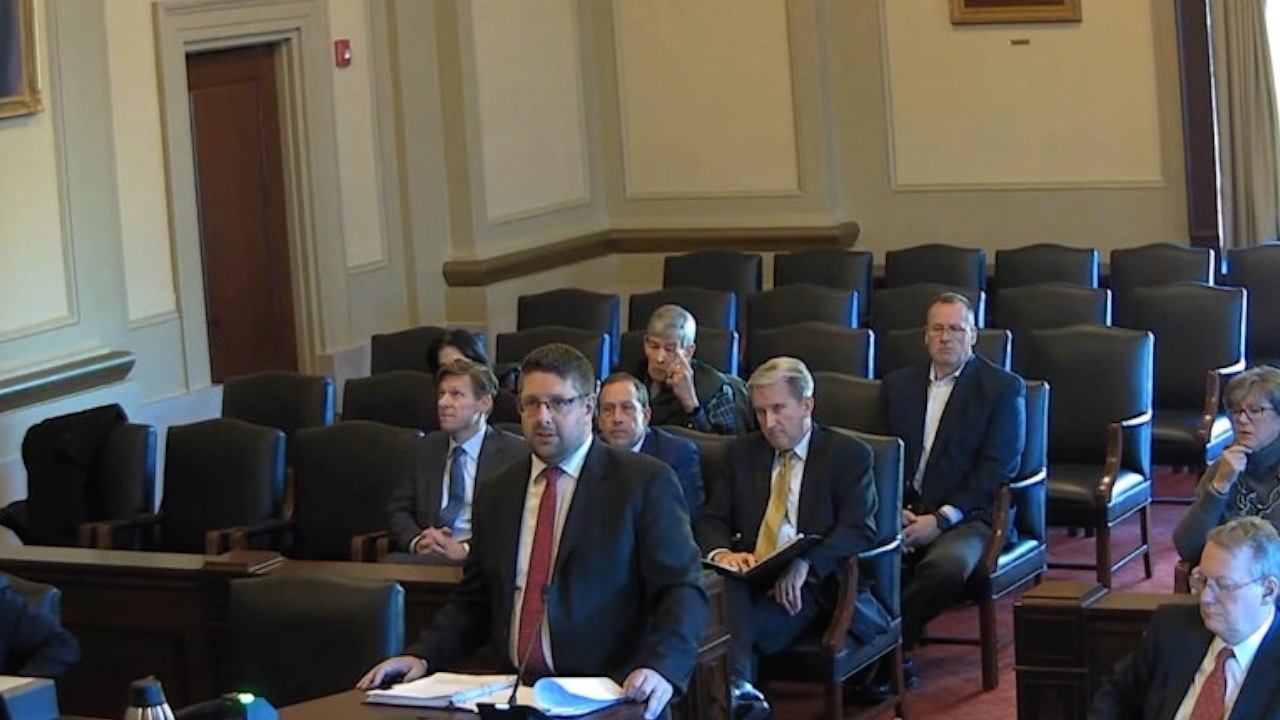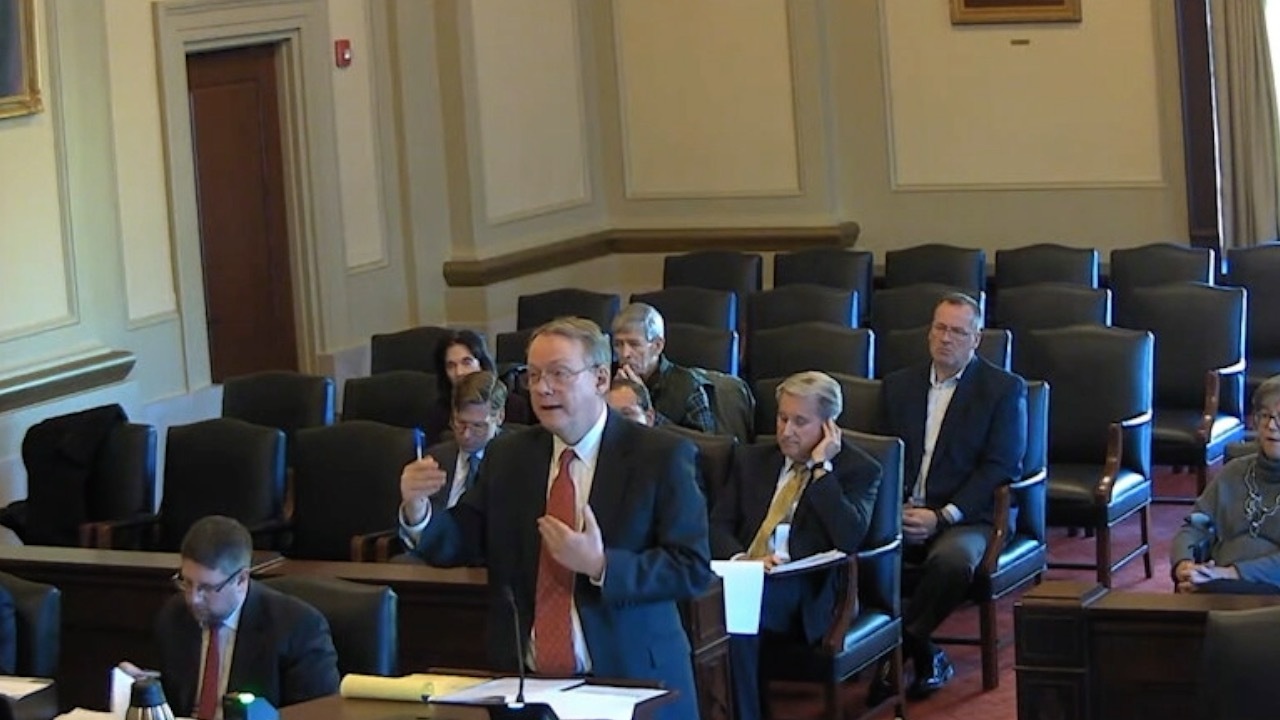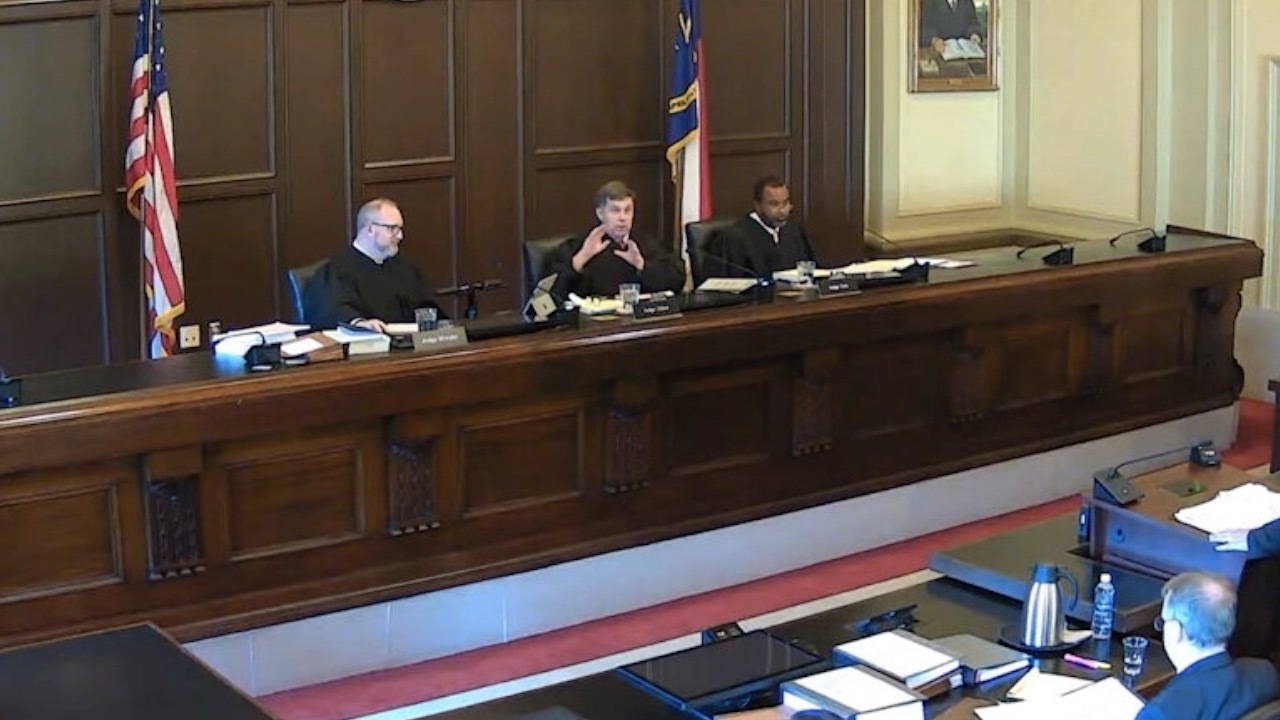- The state Court of Appeals must decide whether the North Carolina Utilities Commission overstepped its bounds by deciding to regulate a parking lot and barge tied to the Bald Head Island ferry.
- The owner of the lot and barge argues they are separate operations from the publicly regulated ferry. Bald Head Island officials counter that the services are interconnected.
- There's no deadline for a ruling from Appeals Court Judges Chris Dillon, Fred Gore, and Hunter Murphy.
The North Carolina Court of Appeals will decide in the weeks ahead whether the state Utilities Commission had the right to start regulating a barge and mainland parking lot tied to the Bald Head Island ferry. A dispute over that decision generated an hour of oral arguments Wednesday at the state’s second-highest court.
Ferry, barge, and parking lot owner Bald Head Island Transportation objects to the move. The company argues that the parking lot and barge have operated for years separately from the publicly regulated passenger ferry and an island tram system.
The legal case arose after the estate owning the parking lot and barge looked into selling the operations.
“The Village of Bald Head Island expressed interest in purchasing both the utility and nonutility functions but did not offer a market-value price,” argued Kip Nelson, the lawyer representing Bald Head Island Transportation. “That’s really the impetus of how this case started. After the village was unwilling to offer a market-value price, the owners turned to and announced their intention to sell the operations to SharpVue Capital.”

Former state budget director Lee Roberts serves as managing partner for Raleigh-based SharpVue.
“At that point, the village turned to the Utilities Commission and asked it to regulate what had never been regulated before,” Nelson argued. “The commission, of course, accepted that invitation and — in an unprecedented decision — held that it could expand its jurisdiction to cover what it deems important or in the public interest.”
The village’s attorney, Marcus Trathen, defended the commission’s decision. “What they said was it’s an integrated service,” he argued. “There’s no need for the ferry if you don’t have the barge. People aren’t going to come over [to the island] if they can’t eat, if there’s nothing in their house, if they can’t get supplies. They’re not going to come on the ferry. It’s an interconnected service. You’ve got to have one to have the other.”

Bald Head Island is the southernmost of North Carolina’s barrier islands. The public can access the Island only by boat, according to court filings. The village bans most “personal-use” cars from the island. The village requires a special permit for most car operations.
The passenger ferry runs between Southport and Bald Head island. The Utilities Commission issued a certificate in 1995 for the ferry and its associated island tram system to operate as a regulated public utility. Rates for those services were last set in 2010.
All three members of the appellate panel asked lawyers on both sides of the dispute repeated questions.
“Why isn’t the barge a public utility?” Judge Chris Dillon asked. “Doesn’t it transport household goods for money?”

“It does not,” Nelson responded. “The barge is solely an intermodal link. It allows a commercial vehicle to drive onto the barge and then to drive off to the island. But the compensation is solely based on the space that the vehicle takes.”
Nelson emphasized the unprecedented nature of the Utilities Commission’s decision.
“There’s a very specific and detailed definition of what a public utility is in North Carolina,” he argued. “Nowhere is there any provision or hint that the commission would have jurisdiction over a parking lot or the type of barge that we’re talking about here. It’s simply not there. And, frankly, that should end the case.”
“But wasn’t that pretty much the argument the Supreme Court rejected in Southern Bell I, that there’s additional scope that can come under regulation even if it’s not a public utility?” asked Judge Hunter Murphy, referencing a precedent dealing with telephone directories.
“There’s some wiggle room, so why doesn’t the parking lot fall within that Supreme Court wiggle room?” Dillon added.
The company argued against tying the parking and barge services to the regulated utility services. “Of course it’s convenient, as any good business would do — make it as convenient as possible for people who are using the ferry, which is also why there’s a snack bar at the terminal, another convenience for the people who are going to use the ferry,” Nelson argued. “But that doesn’t mean that the snack bar would be regulated. Nor does it mean that the parking lot would be regulated.”
Judge Fred Gore asked the village’s lawyer about the need for regulating the barge in conjunction with the ferry.
“Since the barge is being regulated by the Coast Guard, the pricing scheme seems to have been in place for many years, what are the public harms that the commission is addressing by adding this barge to its jurisdiction?” he asked.
“Being somebody that smells saltwater on a regular basis, I’m finding a hard time understanding that that dog hunts — that one can’t operate without the other,” Gore added.
Trathen emphasized the village’s concerns about the future of the parking lot and barge. “In an environment where these are piece parts, and you’re selling it to the highest bidder, who knows what happens to parking?” he asked. “Does a buyer care about whether the ferry is servied? Or do they just want to build a hotel there?”
The village’s lawyer warned of the potential for “grave consequences for the island” if the Appeals Court reverses the Utilities Commission’s decision. “Would people invest in the island if they can’t be ensured fair and reasonable public access?”
There is no deadline for Dillon, Murphy, and Gore to issue a decision in Village of Bald Head Island v. Bald Head Island Transportation.